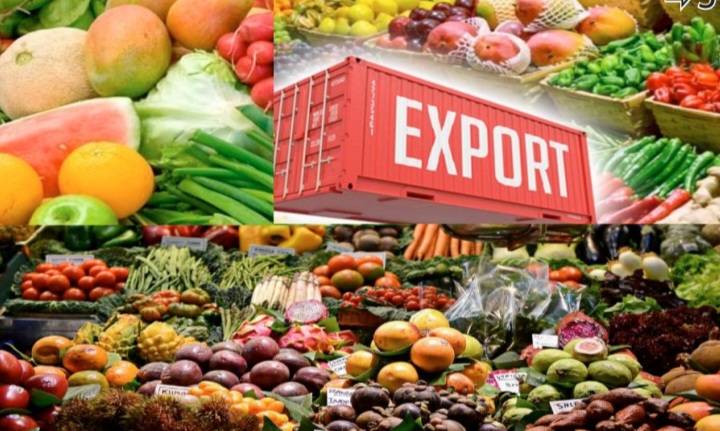World Food Supply Threatened by Climate Change and Water Scarcity, UN Expert Warns

By Salifu Faridat
Alain-Richard Donwahi, President of the UN’s desertification conference, has issued a stark warning that the global food supply is on the brink of disruption even before the 1.5°C temperature target is reached.
The convergence of climate crisis impacts, water scarcity, and unsustainable farming practices has created a grave threat to agriculture worldwide, prompting the need for immediate action to prevent catastrophic consequences.
Donwahi, who led the UN’s Cop15 summit on desertification last year and formerly served as the Ivory Coast’s defense minister, highlighted the rapid acceleration of drought-induced effects that are surpassing projections.
He described the alarming pace of climate degradation and its cascading impacts as a “pandemic” that requires urgent attention.
“While achieving the 1.5°C target is crucial, the sobering reality is that adverse outcomes such as soil degradation, water scarcity, and desertification are looming dangerously close even before we reach this threshold,” Donwahi warned.
He pointed to the dangerous combination of rising temperatures, extreme heatwaves, intensified droughts, and more frequent floods, all contributing to food security challenges across various regions.
Donwahi also emphasized how suboptimal agricultural practices are exacerbating the situation.
He drew attention to poor soil management habits and unsustainable farming methods that lead to soil degradation and compromised yields.
“Soil degradation goes hand in hand with harmful practices, directly impacting agricultural productivity. The condition of the soil determines the yield,” he explained.
In light of these escalating challenges, Donwahi called for the involvement of private sector investors, highlighting the potential for profitable innovation.
He stressed the alignment between private sector interests and sustainable agriculture.
“Maximizing yields, adopting agroforestry—these avenues offer profitable returns for the private sector. Our approach must be innovative to unlock new financial opportunities,” he asserted.
Despite the global community’s commitment to combat desertification since 1992, the issue often takes a backseat compared to climate and biodiversity concerns.
Last year’s Cop15 summit on desertification received relatively less attention in comparison to climate and biodiversity summits.
Donwahi underlined that desertification cannot be ignored.
“Addressing desertification and drought is pivotal in addressing broader challenges—climate change and loss of biodiversity. The consequences are interlinked, transcending borders and nationalities,” he cautioned.
Urging international cooperation, Donwahi called on affluent nations to recognize Africa as a source of solutions to the climate crisis.
He highlighted Africa’s wealth of natural resources, including renewable energy minerals and substantial groundwater reserves.
He proposed a collaborative approach, where financially endowed nations support resource-rich nations to achieve shared goals.
“Africa holds the solutions. Harnessing its natural resources for renewable energy, enhancing food security, and safeguarding biodiversity holds immense promise. This symbiotic partnership is a path to mutual benefit,” Donwahi concluded, also urging Africans to proactively seize opportunities and foster a positive attitude towards collaboration and self-sufficiency.
